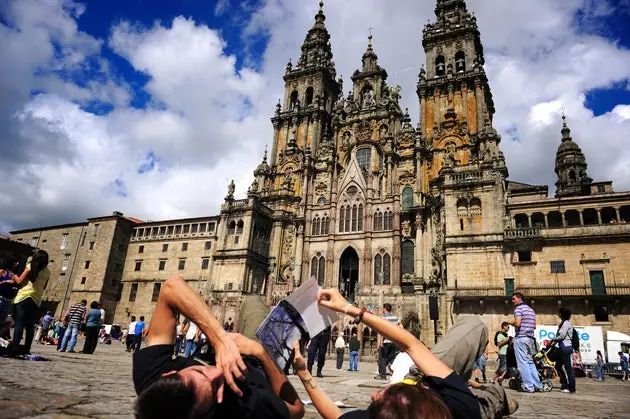
Basic dictionary to defend yourself if you travel to Galicia
In case you have planned a trip to the north, this basic dictionary will accompany you by way of guidance and advice for Spaniards. Our Galician alphabet brings together a series of terms and phrases with denomination of origin with the aim that the inevitable trance described does not hurt you a little more than necessary.
- FACER AS BEIRAS: as you will have the opportunity to check upon your arrival in Galicia, the Galician is by nature a flirt and he has a reputation as a good lover, so the local language is rich in expressions referring to love art, courtship and compliments. Facer as beiras is nothing more (or less) than flirting or trying to make someone fall in love.
- PANNELS: crayfish. It is not that there are no crabs on the Galician coast. Quite the contrary. There are so many that Galician children have completely lost respect for them and go to the beach to play with them, so the term cangrejera would not be a good commercial claim for its sale . The name fanequera alludes to the angry pout , a bastard fish that lives on the beaches of the open sea and cold water and bites parents and children at low tide.
- CARALLO: It is the polysemic word par excellence in the Galician language and it will serve to express everything from surprise, exhaustion or resignation, to praise, joke or assessment, whether positive or negative. Adopt a carallo in your vocabulary!
- FURANCHO: In the Rías Baixas area, this type of seasonal establishment abounds, traditionally enabled in a private warehouse , where surplus wine produced for private consumption is sold. In practice, many of them are authentic eating houses, so don't miss the opportunity to get close to one and warm up with the goodness of the local gastronomy.
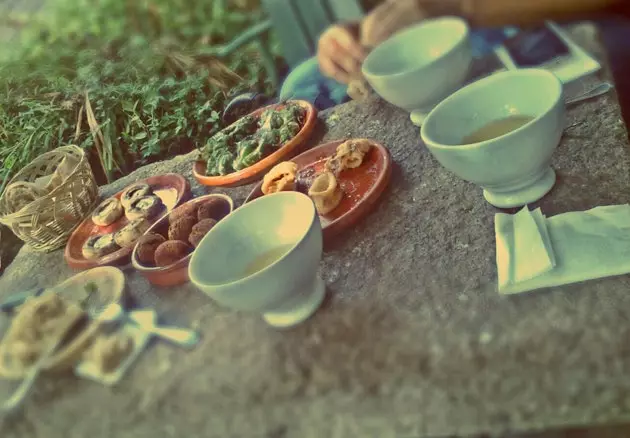
EAT, big and with pleasure
- UGLY: an architectural trend with a vast tradition consisting of expanding a stone house using exposed brick and corrugated iron, erecting an enclosure for a farm with a metal bed frame or build a ten-story blue building in a coastal town with low-rise houses among other practical applications.
- GO BY TRACKS: Whether you are a native of Tomelloso or L'Hospitalet, you will not be able to proudly tell your people that you have known Galicia thoroughly if you do not get on the slopes at least once. The tracks are secondary roads to which a good part of the Galician youth resorts when it comes to moving , alicorada, from one verbena to another by car. For greater enjoyment, it is advisable to go quickly.
- FARINA: It is the powder resulting from grinding the grain of wheat, corn or any other cereal. At night it is distributed in bars and nightclubs by individuals of dubious reputation. My advice is that you buy it in an approved establishment bakery, grocery or supermarket type.
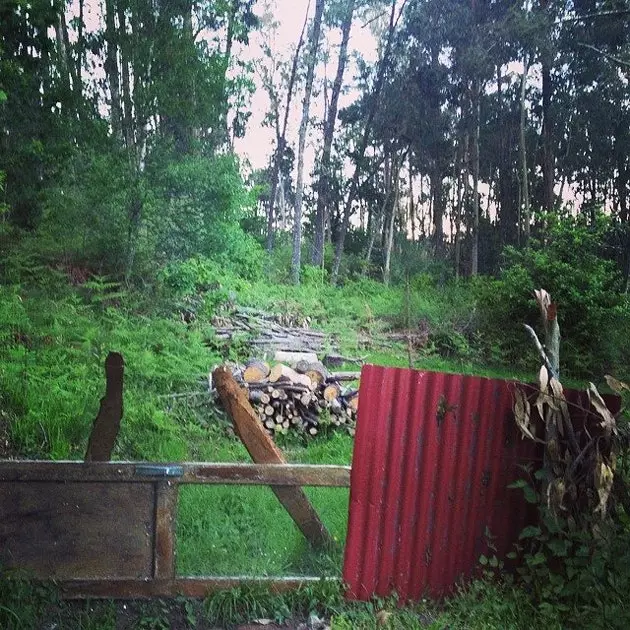
Galician feísmo: a kind of recycling in the middle of the mountain
- FESTA DO POLBO OR EXALTATION OF POLBO : No. It's not what you imagine. It is worth that Galicia is the Autonomous Community with the most brothels per square meter but... ** polbo is octopus in the local language. Don't rub your paws yet...**
- MIÑAXOIA: the literal translation of the term into Spanish will lead to confusion for more than one. If you hear him or, worse, they call you, don't continue to file. Being miñaxoia is something like being a beautiful person.
- DO NOT APART TWO CARS: If you hear this statement from the mouth of a native, you should know that they're calling you dumb . Don't get overwhelmed, you can always ignore it and go somewhere else. It will be by places...
- TAILBOARD: the best Spanish dictionaries point out that the rabudo is the one with the big tail, and in Venezuela they call rabudo the one with a nice or prominent ass. ** In Galicia they call rabudo the one who has very bad milk.**
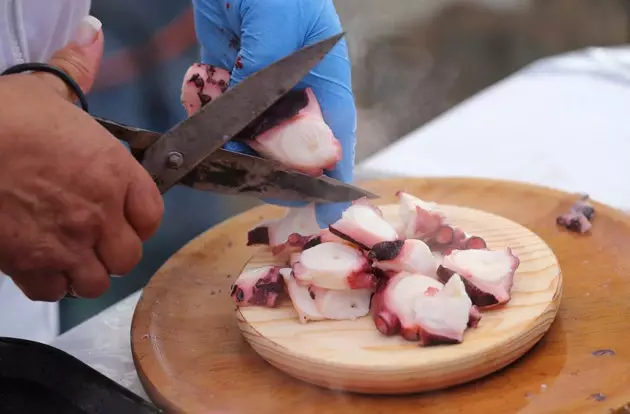
Pulpeira, creating
- RECOVER: the cunca or cup is the traditional container where the broth, milk or wine is served and to recuncar is to repeat. If you want more, ask to recuncar.
- RIQUIÑO: is the one who inspires sympathy and who in turn he is neither handsome nor ugly.
- TENNIS: sneakers. Go play volleyball, badminton or basketball, a Galician wears tennis shoes.
**VIGO SPECIAL SELECTION **
You should know that in far west iberian there are around 35,000 places or population centers, more or less the same amount as in the rest of the Spanish geography, so you will quickly understand that Galicia may be even more diverse than the whole of Spain … Deep reflections aside, the most populated nucleus of the west coast is Vigo , where they treasure a peculiar jargon that does not understand social classes, neighborhoods or urban tribes. Advice: culture shock is looming, do not stop studying it if you decide to go there.
- LIGHTHOUSE: Newspaper . Vigueses don't read the newspaper, they read the lighthouse. And, therefore, the windows of the house are cleaned with headlights, the floor is protected with headlights when the walls are painted, and gifts are wrapped with headlights (or in wrapping paper, of course).
- GHICHO AND GHICHA : man and woman. And point.
- CHIPS: For the people of Vigo, potato chips are potato chips. All of them: the wavy ones, the classic ones, the ham ones... Don't ask for a steak with chips no matter how polite you get up, they'll bring you bagged chips.
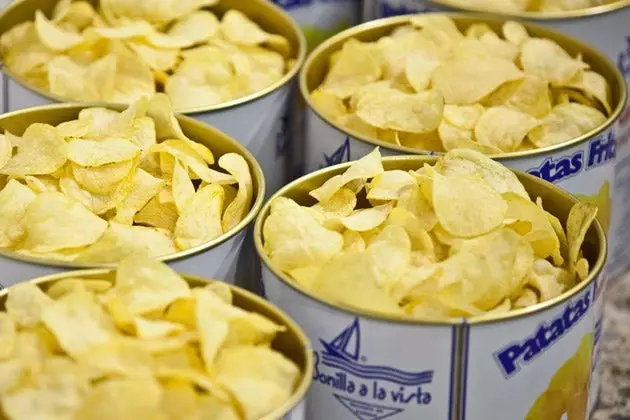
Bonilla potatoes: perfect
- FUCKING : your. Whether you like it or not in Vigo you will be a jodechinchos. But don't worry, the people of Vigo are also on the other side of its estuary.
- LOOK AT: watch. The people of Vigo don't see, they look.
- PINAR: make love (rough plan).
- GLASS: VITRASA is the company in charge of public transport in Vigo and vitrasa as the people of Vigo call the buses, whether they take the route from Bouzas to Teis (neighbourhoods of Vigo) or from Bilbao to Madrid.
Finally, inform you that it rains a lot in Galicia. Proof of this are the innumerable ways Galicians have of calling the rain: arroiada, auganeve, babuña, babuxa, ballón, barbaña, barbuza, barrallo, barrufa, barruñeira, barruzo, basto, bátega, bategada,borella,borraxeira,borraxoia, breca, brétema, zebra, zebrina, cegoña, chaparrada, chuvascada, chuvasco, chuvia chuvieira, chuviñada, chuvisca, chuviscada, choiva, figure, ciobra, dioivo, escarabana, froallo, fuscallo, lapiñeira, marmaña, néboa, neboeiro, nebra, nevada , nevarada, nevareira, nevario, nevarisca, nevisca, orballo, parruma, parrumada, patiñeira, patumeira, pedrazo, poalla, poallada, poalleira, poallo, salabreada, sarabiada, torba, torboada, torbón, treboada, trebón, treixada, xistra, zarracina , briar... and those that we will be leaving behind along the way…
It is possible that the clinical picture described at the beginning of this text has nothing to do with culture shock. and it is due rather to the typical dizziness as a consequence of crossing the curtain of turnip tops on tracks . If so, you will know. Take a breath, take a deep breath and enjoy! Oh, and you don't need to read this basic dictionary for misfits, you won't.
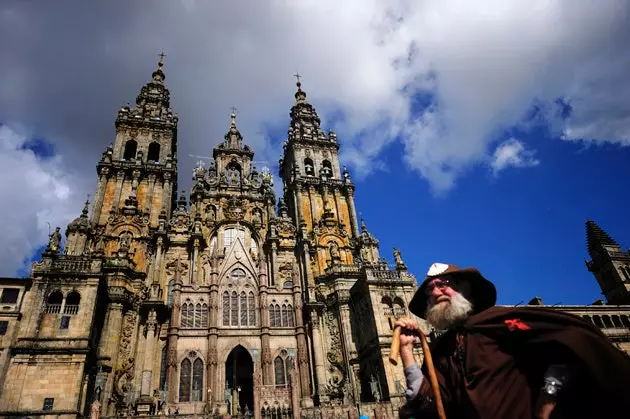
Basic dictionary to defend yourself in Galicia
